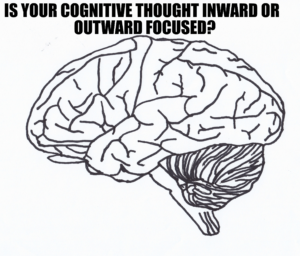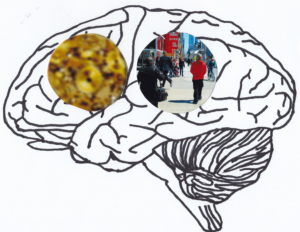
Anyone interested in how the universe works may find this interesting, anyone who is an Astro Physicist or has a Ph.D. in quantum mechanics may find this hilarious. For anyone else, unless you are having trouble sleeping, you might as well just stop reading now.
With my formal education in this field of high school physics and a hobby-level in astronomy, I have still managed to come up with a few theories of how the universe may work. Although most are probably wrong there still may be something here to inspire a more educated mind in this field to come up with new ideas.
Since the big bang, it would seem logical that the universe would be tying to reach a state of uniform equilibrium. Like shaking a can of pop, once the shaking stops, the forces creating bubbles and fizz eventually cancel out and the pop becomes a calm uniform liquid. By figuring out what a calm uniform liquid is in terms of the universe, we can develop the math to predict how and when this will happen. This will not only help us to better understand how the universe works and it’s future, but enable us to reverse the math to figure out and better understand the past.
My theory is the universe’s version of a calm uniform liquid could be to eventually be composed of 100% dark matter and energy, containing no regular matter at all.
Dark matter is thought to be the area of everything we call the universe that is not matter. What we consider empty space or nothing is actually dark matter. Dark matter provides an empty three-dimensional place necessary for matter to exist. If you imagine a drawing of the universe, dark matter would be the blank paper it is drawn on, and the regular matter would be the things we draw.
Current theories estimate the total mass of the universe is composed of 95% dark matter, and it is increasing. In the analogy above, it would be like the paper the universe is drawn on is getting bigger. Because dark matter has mass, albeit a very tiny amount, either the universe’s mass is also increasing or the mass of regular matter is being transformed to dark matter, but how?
Since the big bang, most regular matter has gathered in many tiny areas of the universe that we call galaxies. Like puddles of water after a rainstorm. In the center of each galaxy is thought to be a supermassive black hole. Black holes have a mass and gravity so great even light can not escape. As the matter that makes up the galaxy swirls around this supermassive black hole, it is drawn towards and into it. If you imagine a sink full of water, the black hole is the drain in the middle. But where does the matter go? Is it simply compressed to the density of the singularity, adding to its mass? This would seem to be the most logical explanation but Hawking radiation suggests black holes that do not gain mass eventually shrink and vanish. If this is true, where do they go and what happens to their mass?
My theory is the two are connected and black holes are converting matter to dark matter. The extreme forces that subatomic particles go through as they become part of the black holes accretion disk and cross the event horizon becoming part of the singularity tears them apart further, creating new unknown even smaller particles. The entire singularity itself is made up of these particles. I also think all black holes have wormholes connected, leading to a point/points somewhere outside the black hole, away from its enormous gravitational effects. If these new unknown particles that the singularity is composed of are pushed through the wormhole, once away from the immense forces of the black hole they emerge as dark matter. In other words, every galaxy has a supermassive black hole that is consuming its matter and converting it to dark matter. In the same analogy, black holes are erasing the things in the universe we have drawn on the paper and turning them into more blank paper.
So what causes the matter of the singularity to be pushed through the wormhole? Fighting the centripetal force from the velocity of matter in the black hole’s accretion disk as well as the pull from all the matter in the galaxy surrounding it is what keeps the black hole open and allows the singularity to maintain its mass and keep from being pushed through the wormhole. Therefore the mass of the singularity should be proportional to the gravitational pull from all matter surrounding it. As more matter crossing the event horizon increases the singularity’s mass beyond the force of the surrounding gravity, an equal amount of the singularity’s mass is pushed through the wormhole and becomes dark matter. Once all the matter in that galaxy is consumed by the black hole there is nothing left to keep it open and all of the singularity’s remaining mass is pushed through the wormhole, therefore closing the wormhole and leaving nothing but dark matter. This would also explain Hawking radiation. Eventually, all galaxies will be consumed by their black holes and the entire universe will become nothing but dark matter and energy. At this point, the total mass of the universe would not have changed, but its volume and density would be drastically different. Going back to the analogy, the universe would be a much larger piece of paper then it is now with nothing at all drawn on it. A state of uniform equilibrium.
STUDIES TO TEST THE THEORY
- First, observations to see if newly formed dark matter only happens around black holes There can be many black holes in a galaxy, not all are supermassive but all are converting matter to dark matter. The effect should be mathematically relative to their size.
- There should be a relation between the mass of the singularity and the gravitational force of the matter around it. Because matter on the accretion disk is traveling around the singularity close to the speed of light, its centripetal force in determining the mass of the singularity should be proportionally higher than the gravitational force of the rest of the matter in its galaxy. In fact, the matter in the galaxy may be more of just a fuel source for the accretion disk and not very significant when it comes to determining the mass of the singularity.
- The higher the mass of the singularity, the further away the other end of its wormhole and formation of dark matter should be. This location or locations should also be as far away from any regular matter as possible at that distance.
- Although the singularity is the only entrance to the wormhole, there may be millions of tiny exits Dark matter may appear to be bubbling in areas all around the black hole.
- The higher the amount of mass crossing the event horizon, the greater the amount of new dark matter that should be observed. Math has shown that the density of dark matter should be 0.006 solar masses per cubic parsec. So if our sun was suddenly pulled into a black hole, we should see the creation of 166 cubic parsecs or 5,760 cubic light-years of dark matter. This math is based only if the mass of the matter both in the surrounding galaxy and the accretion disk does not change to alter the mass of the singularity.
OTHER LOGICAL ASSUMPTIONS
- Somehow the formation of new dark matter does not displace the existing dark matter but rather creates new space between. If it were to displace, the combined sources would eventually push the galaxies at the outer edges of the universe away faster than the speed of light.
- In keeping with Einstein’s theory of relativity and the relationship between time and the speed matter passes through a gravitational field. Its possible dark matter not only provides a place for matter to exist but also through expanding the universe and changing gravitational fields of the matter within, its also the fuel that creates time.
Still awake?
With regards to string theory and quantum physics. The problem of gravity being too weak within the equation of the 4 forces of quantum mechanics may be in the way we calculate it. Because gravity is always present and everywhere, much of its force may be canceled out. The entire universe is pulling at all matter from all directions and may not be factored into our current mathematical explanation for it correctly.
Imagine taking an open empty pop can to the bottom of the ocean. Although the can can be easily crushed by the small amount of force from your bare hand, even at pressures of 1000’s of pounds per square inch the ocean can’t even put a dent in it. Only if you bring a sealed empty pop can to the bottom of the ocean will you see the actual force of water pressure and the can would be crushed flat. If gravity is the ocean, are our calculations of it based on the empty open pop can or estimated incorrectly on the empty sealed pop can? Because gravity is everywhere it is impossible to get a sealed pop can empty of it.
One other thing, the singularity of a black hole may turn out to be just a hole in space and time that mimics gravity. A wormhole entrance created by the extreme density of the mass from the singularity we perceive to still be there. If this is the case everything I have listed above could still be true except the mass of the singularity itself would have already passed through the wormhole and been converted to dark matter.
Still awake?…………I tried my best…….Time to consider a sleeping pill.
Dave Lister
listerlogic.com







 To a fly, a fly swatter is the size of tennis court and to avoid getting killed it must react, and fly 6 to 10 times it’s body length all in a fraction of a second. Yet a fly’s brain is smaller then the head of a pin and even with our superior brain, strength, size, and armed with a fly swatter we sometimes miss. How is this possible?
To a fly, a fly swatter is the size of tennis court and to avoid getting killed it must react, and fly 6 to 10 times it’s body length all in a fraction of a second. Yet a fly’s brain is smaller then the head of a pin and even with our superior brain, strength, size, and armed with a fly swatter we sometimes miss. How is this possible?